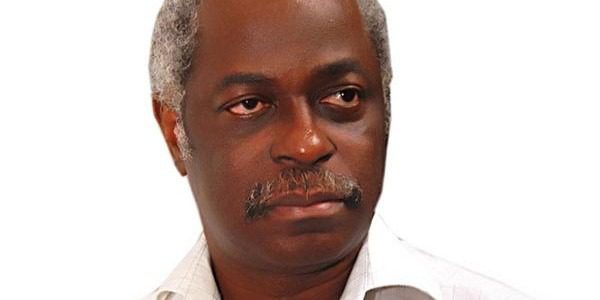Article of Faith
The Promise of God -By Femi Aribisala


Femi Aribisala
In Jesus’ parable, the Prodigal Son told his father: “I want my share of your estate now, instead of waiting until you die.” (Luke 15:12). Once he received his share, he had no more need of his father. He went as far away from him as possible. Clearly, the inheritance was his objective and not the father. But if he had not received his inheritance but only had hope of receiving it, he would certainly have remained with the father.
Waiting on God
As believers, we are heirs of God. But we cannot come into the inheritance without Christ. The promises of God are not without Christ but in him. Therefore, God makes us promises, and then waits to see if we shall remain in him: “Therefore the LORD will wait, that he may be gracious to you; and therefore, he will be exalted, that he may have mercy on you. For the LORD is a God of justice; blessed are all those who wait for Him. (Isaiah 30:18).
Will we become fed up? Will we get tired of waiting? Or will we take advantage of the opportunity to get to know him by faith, even before seeing him face to face? These are the choices now before us. Eternal life is about spending eternity with God. If we would rather not be in his presence on earth, why would we dwell in his presence forever in heaven?
Eternal life is a gift of God. But that gift cannot be realised outside of the knowledge of God. (John 17:3). Are we prepared to wait and get to know him? If God could wait for us to give our life to Christ; surely, we can wait for him even if it takes a lifetime.
The church is the betrothed bride of Christ. We are engaged. An engagement is a promise. The main requirement of an engagement is faithfulness: “Therefore be patient, brethren, until the coming of the Lord. See how the farmer waits for the precious fruit of the earth, waiting patiently for it until it receives the early and latter rain.” (James 5:7).
Faith and patience
How do we wait for God? We wait in prayer, telling him about whatever difficulty we are having. We wait in faith and with expectancy. We wait without fretting. Abraham staggered not at the promise of God. The promise is realised by the exercise of faith. Faith keeps the promise alive until its realisation. That faith is a vital ingredient in our relationship with the invisible God.
What happens if the promises of a man are not fulfilled? We are disappointed. We might even become bitter. But what about the promises of God? They never disappoint because they are entered into by faith. The writer of Hebrews says: “These men of faith I have mentioned died without ever receiving all that God had promised them; but they saw it all awaiting them on ahead and were glad, for they agreed that this earth was not their real home but that they were just strangers visiting down here.” (Hebrews 11:13).
Why were these people not disappointed? They discovered that the promise itself was more than enough. The promise turned out to be even more substantial that what was promised. The promise brought them to the Father. The promise kept them with the Father. And being with the Father is more than enough.
City of God
What was the great promise that so motivated Abraham that he left his kith and kin for a land unknown? “By faith Abraham obeyed when he was called to go out to the place which he would receive as an inheritance. And he went out, not knowing where he was going. By faith he dwelt in the land of promise as in a foreign country, dwelling in tents with Isaac and Jacob, the heirs with him of the same promise; for he waited for the city which has foundations, whose builder and maker is God.” (Hebrews 11:8-10).
Where is the city that Abraham was looking for? Was he looking for Canaan? Was it New York City? Is that city in heaven? “For those who say such things declare plainly that they seek a homeland. And truly if they had called to mind that country from which they had come out, they would have had opportunity to return. But now they desire a better, that is, a heavenly country. Therefore God is not ashamed to be called their God, for he has prepared a city for them.” (Hebrews 11:14-16).
Abraham was looking for us: the new creation. We are that city. Our builder and maker is God. We are the Zion of the Lord, a city not built with human hands. The promise, on the other hand, is the Holy Spirit, which we have received as believers: “Because of what Christ did, all you others too, who heard the Good News about how to be saved, and trusted Christ, were marked as belonging to Christ by the Holy Spirit, who long ago had been promised to all of us Christians.” (Ephesians 1:13).
Holy Spirit
Abraham was moved by the promise of the Holy Spirit. With the Holy Spirit comes the righteousness of God. With the Holy Spirit comes a sinless life. With the Holy Spirit comes a life of true whole-hearted worship. If the promise of the Holy Spirit was sufficient to motivate Abraham, surely the reception of the Holy Spirit should be enough for us today. Jesus says: “If even sinful persons like yourselves give children what they need, don’t you realize that your heavenly Father will do at least as much, and give the Holy Spirit to those who ask for him?” (Luke 11:13).
Jesus told his disciples to wait in Jerusalem for the promise of the Father. What did they receive in Jerusalem? Did they come into houses and lands and positions and property? Were they disappointed and disgusted when what arrived was the Holy Spirit? Certainly not! So how come the Holy Spirit is not enough for us today? How come we are not complete in him? How come we are incomplete without a job, without a husband, or without a car?
When Hannah refused to eat because she did not have a child, her husband Elkanah asked her: “Isn’t having me better than having ten sons?” (1 Samuel 1:8). Is having the Holy Spirit not better than having ten houses? Is it not better than ten husbands? Is it not better than being President of Nigeria?
Everyone that Jesus healed later died naturally. Even those he raised from the dead grew old and died. So, what was the point of their healing? Was it merely to prolong their physical life?
It is the promise that provides the foundation for a continuing relationship with God. A gift provides no guarantee for a relationship. But the promise is the confirmation that there is indeed a relationship. Jesus says: “Whatever you ask in my name, that I will do, that the Father may be glorified in the Son. If you ask anything in my name, I will do it.” (John 14:13-14).
That means we now have a relationship with God because of Jesus Christ.




















